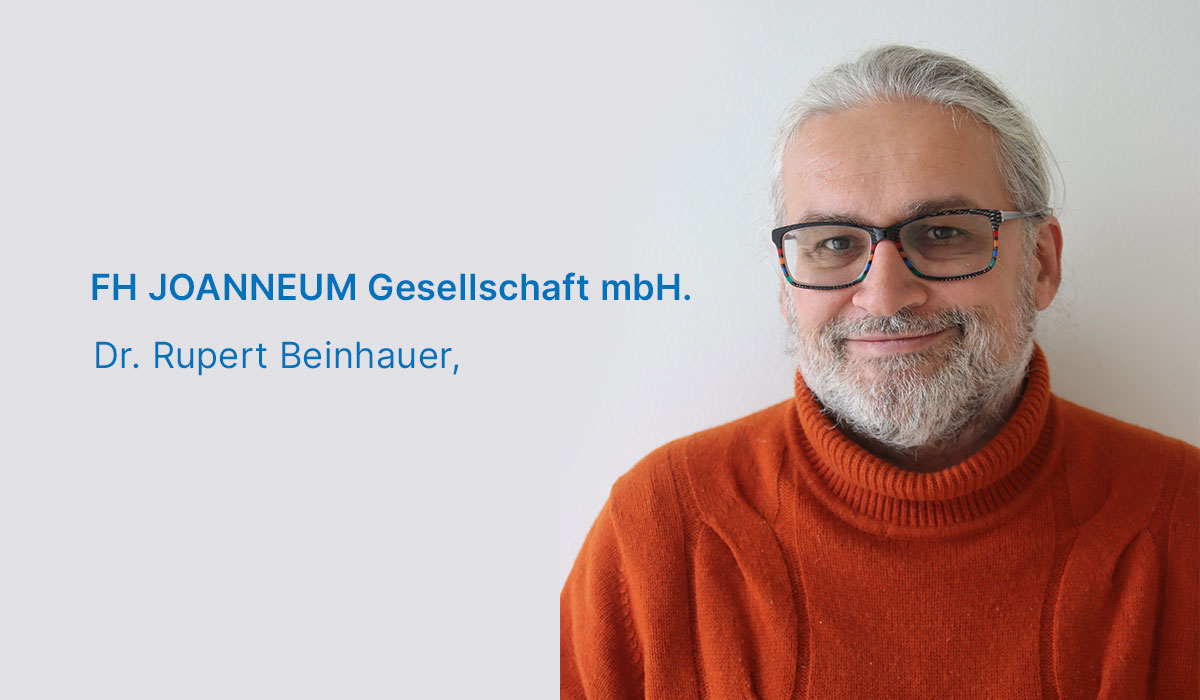Pioneering the Future of Education
The Entrepreneurial and Cross Cultural Case Challenge
The purpose of this blog post is to explore an innovative educational approach, the Entrepreneurial and Cross Cultural Case Challenge at FH JOANNEUM, highlighting its alignment with the Sustainable Development Goals (SDGs). Through this analysis, we aim to demonstrate how this method contributes to Quality Education, Reducing Inequalities, and fostering global Partnerships, thus serving as an exemplary model for educational institutions seeking to enhance their curricula and impact.
In the contemporary landscape of higher education, the pressing need for innovative teaching methodologies to prepare students for the complexities of the global business environment has become increasingly significant. Traditional teaching methods, often characterized by passive learning, are being reconsidered in the face of rapid societal, technological, and economic changes. The shift toward innovative pedagogies is propelled by the recognition that modern education must go beyond mere knowledge transmission to foster critical competences such as collaboration, creativity, and problem-solving (Istance, 2019). Moreover, the global nature of today’s society necessitates graduates who are not only knowledgeable but also adept at navigating cultural differences and collaborating across borders. The integration of innovative teaching methodologies in higher education—such as blended learning, gamification, and experiential learning—addresses this need by enhancing student engagement, understanding, and real-world problem-solving abilities (Advance HE, n.d.).
These pedagogical innovations are aligned with strategic educational priorities that aim to embed employability, transform assessment, and internationalize higher education. Such priorities ensure that higher education institutions offer value not just in terms of academic knowledge but also in preparing students for life beyond university and enabling them to contribute responsibly to a globally interconnected society (Advance HE, n.d.).
At the heart of addressing this need is the Entrepreneurial and Cross Cultural Case Challenge, an educational approach that embodies the integration of practical business challenges with the enriching experience of intercultural collaboration. The approach is based on connectivist theories and views (Beinhauer & Jovanovski, 2019). The core of this method lies in its hands-on approach, where students are divided into diverse teams to tackle real-world business cases directly sourced from the industry. This interaction not only bridges the gap between theoretical knowledge and practical application but also fosters an environment where students are compelled to navigate the nuances of cross-cultural communication and teamwork.
Such an educational model is grounded in the philosophy that learning should be reflective of real-life business scenarios. The teams are tasked with developing innovative solutions to challenges presented by participating companies. This process not only requires a deep understanding of business concepts but also demands a high level of adaptability, critical thinking, and interpersonal skills as students collaborate with peers from various cultural backgrounds.
The application of this method within the academic framework involves meticulous planning and collaboration between educational institutions and industry partners. Facilitators or educators act as mentors, guiding students through the complexities of the project, ensuring that learning objectives align with the real-world demands of business problem-solving. Continuous feedback is an integral part of the process, providing students with valuable insights into their performance and areas for improvement.
The real-world impact of the Entrepreneurial and Cross Cultural Case Challenge is significant. For students, it offers a unique opportunity to apply academic knowledge in a practical setting while gaining invaluable experience working in culturally diverse teams. This prepares them for the global workforce, where such skills are increasingly in demand. For businesses, the challenge serves as a platform to gain fresh perspectives on existing problems and to scout potential talent. The collaboration with academic institutions fosters a synergy that benefits both sectors, aligning educational outcomes with industry needs.
The Entrepreneurial and Cross Cultural Case Challenge represents a forward-thinking approach in education. It exemplifies how academia can adapt to the evolving demands of the global market, preparing students not just to enter the workforce, but to thrive within it. As educators, embracing such methodologies is imperative to cultivate a new generation of leaders equipped to tackle the challenges of a rapidly changing business landscape.
Please feel free to contact the authors to discuss the approach. Feedback is always welcome.
References
Advance HE. (n.d.). Enhancing teaching and learning in higher education. Retrieved from https://www.advance-he.ac.uk
Beinhauer, R., & Jovanovski, B. (2019). A connectivist view on student challenges to teach cross-cultural competences and an entrepreneurial mindset. In Proceedings of the Cross-Cultural Business Conference 2019 (pp. [specific page numbers if available]). FH Upper Austria. Retrieved from https://www.fh-ooe.at/fileadmin/user_upload/fhooe/ueber-uns/kongresswesen/2019/CCBC2019/docs/ccbc19-4C_beinhauer-jovanovski.pdf
Beinhauer, R., & Jovanovski, B. (2021). Entrepreneurial and Cross-Cultural Competences Case Challenge (EC5). In Gute Lehre. Retrieved from https://gutelehre.at/projekt?tx_gutelehre_default%5Baction%5D=show&tx_gutelehre_default%5Bcontroller%5D=Project&tx_gutelehre_default%5Bproject%5D=1429&cHash=42a673b83bf6d7136e4ad50500e012c4.
Istance, D. (2019, January 23). Approaches to pedagogical innovation and why they matter. Brookings. Retrieved from https://www.brookings.edu
Written By : Dr. Rupert Beinhauer, FH JOANNEUM Gesellschaft mbH.


